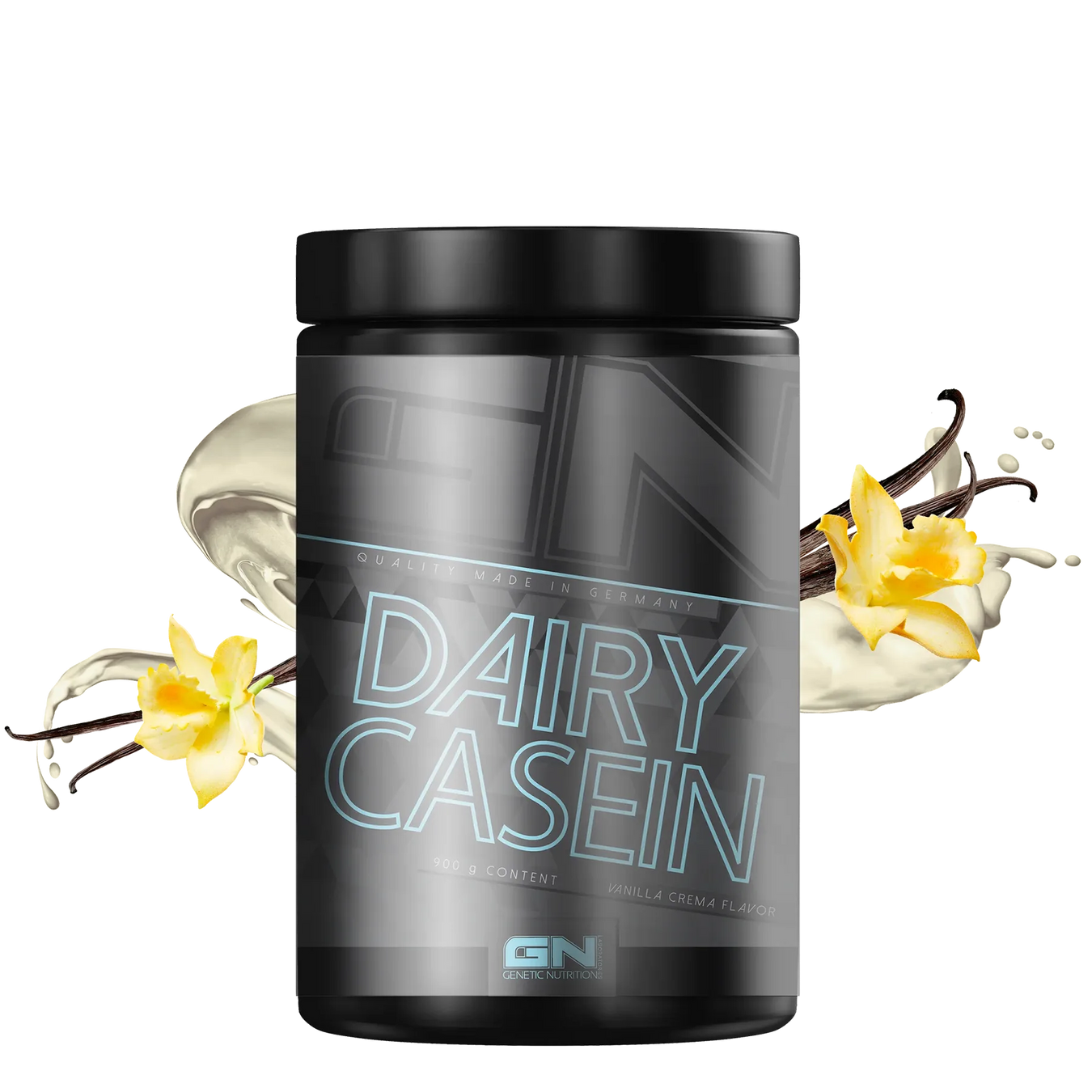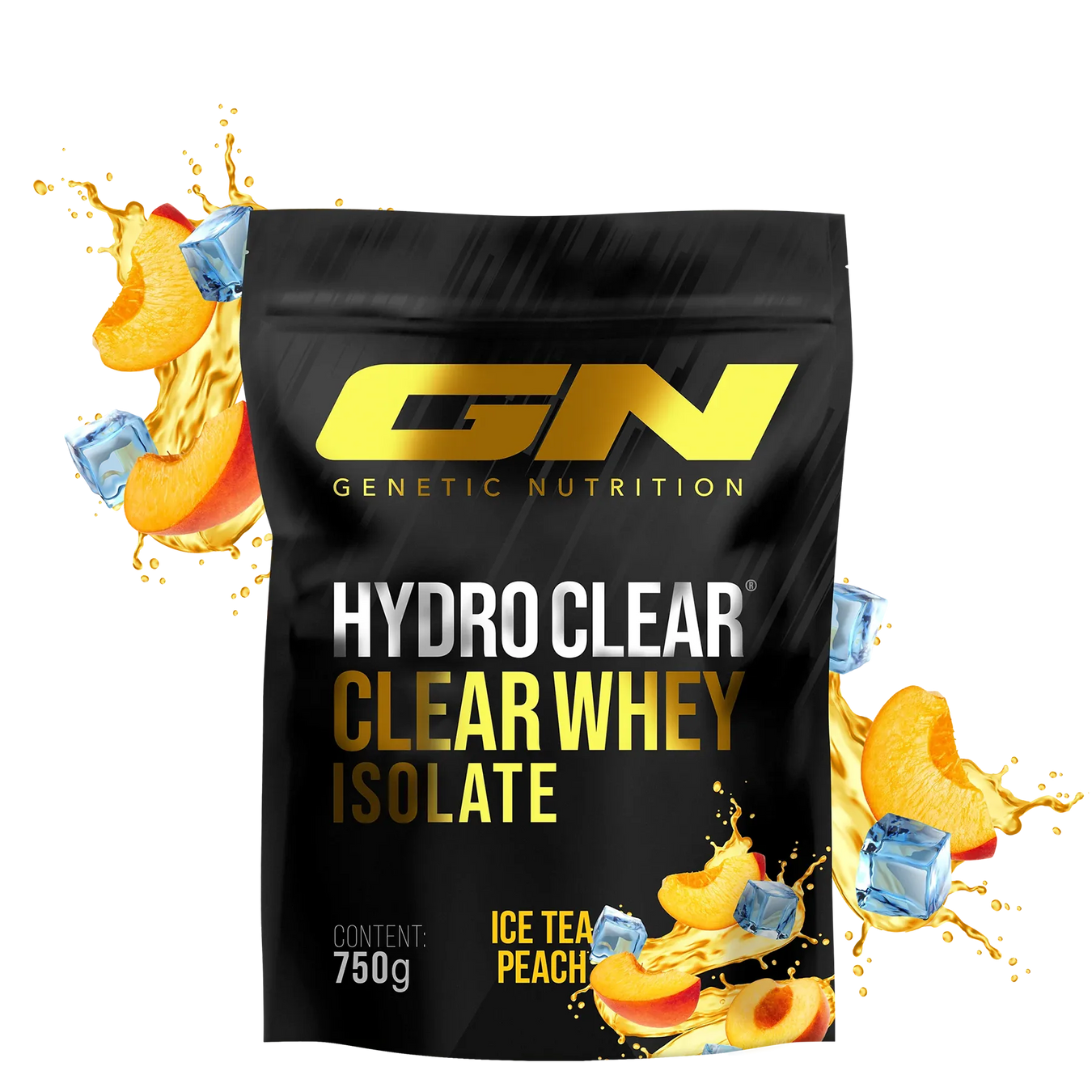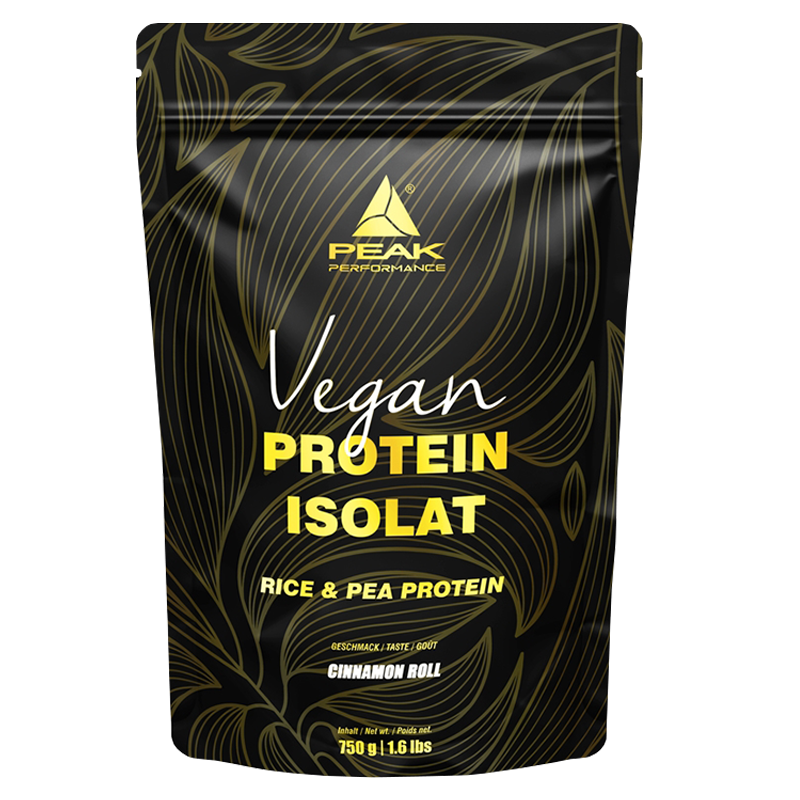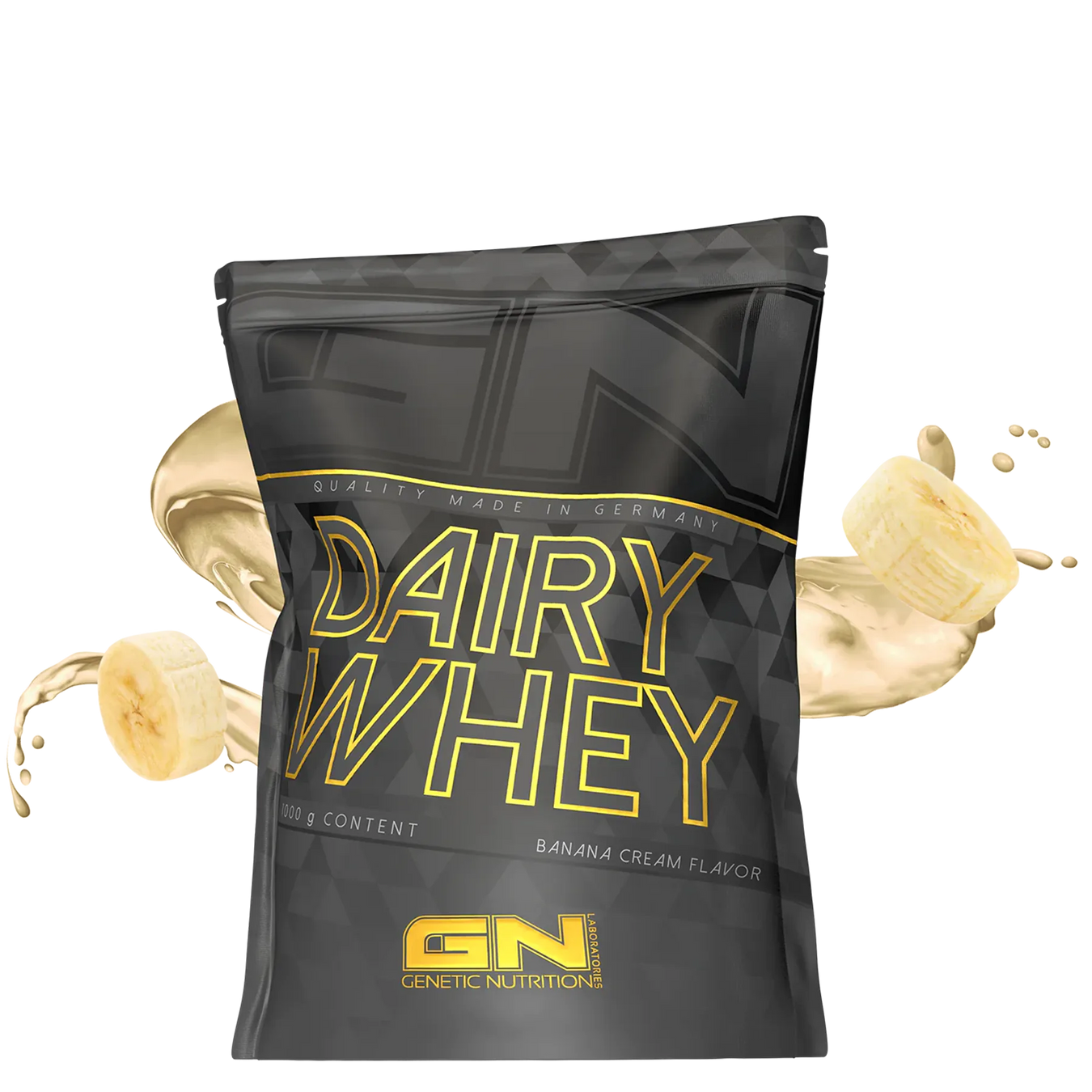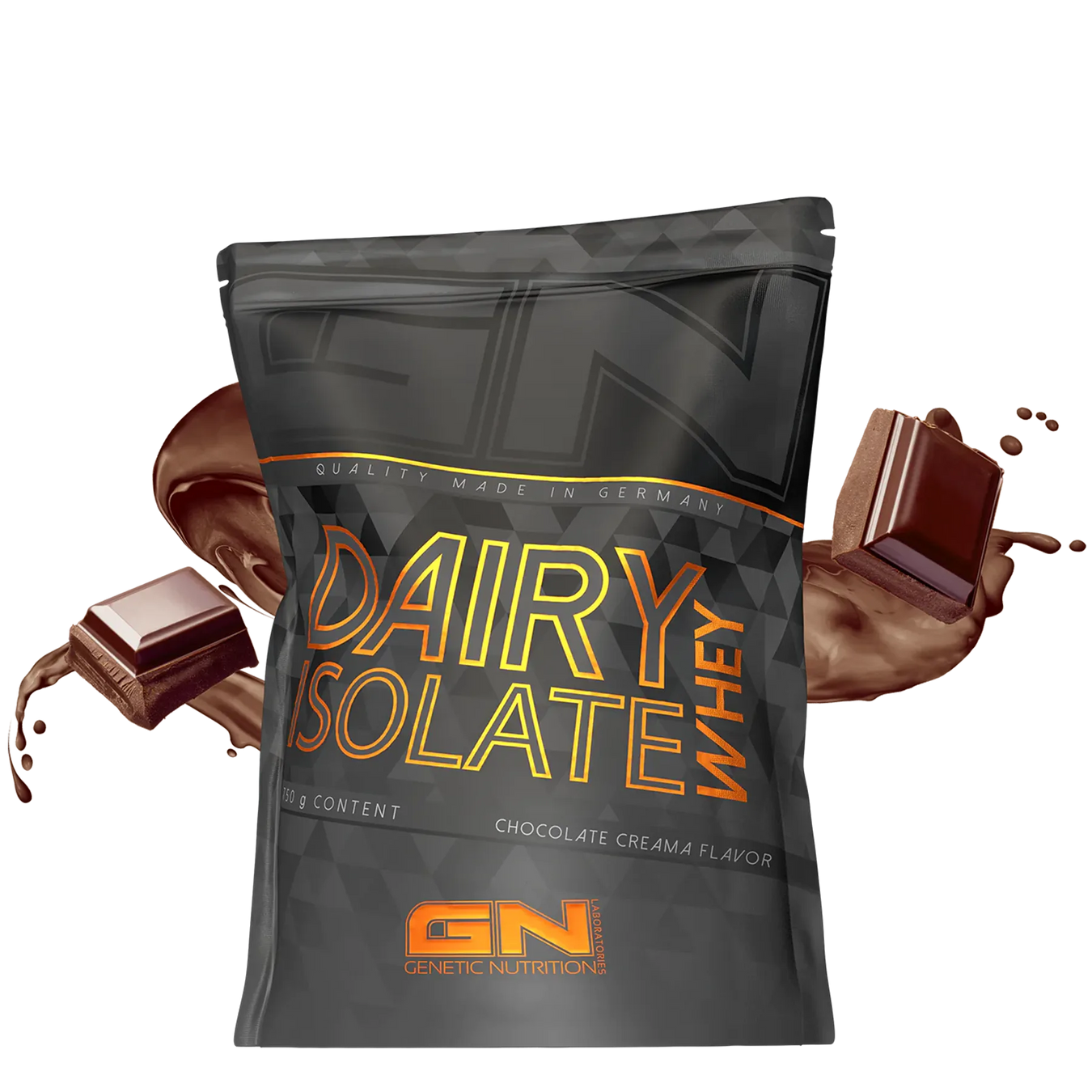Filter
-
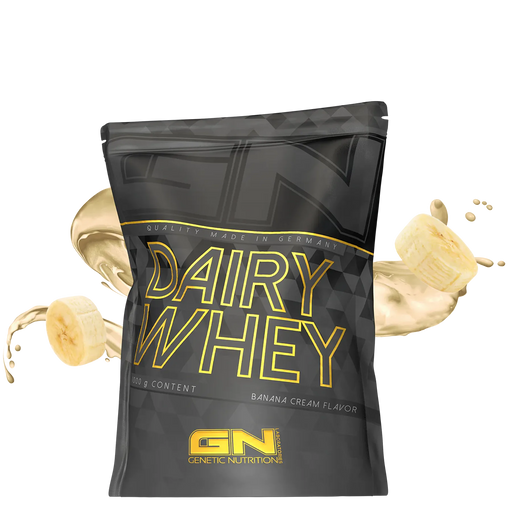 Jetzt 0% sparen
Jetzt % sparen
Original-Preis €29,90 - Original-Preis €29,90Original-Preis €29,90€29,90€29,90 - €29,90Aktueller Preis €29,90|/
Jetzt 0% sparen
Jetzt % sparen
Original-Preis €29,90 - Original-Preis €29,90Original-Preis €29,90€29,90€29,90 - €29,90Aktueller Preis €29,90|/100% Dairy Whey · 1000g
GN Laboratories164 reviewsWhey Protein ist eines des beliebtesten Supplements. Das liegt vor allem daran, dass es eine ideale Eiweißquelle darstellt, mit der man immer und ü...
Vollständige Details anzeigenOriginal-Preis €29,90 - Original-Preis €29,90Original-Preis €29,90€29,90€29,90 - €29,90Aktueller Preis €29,90|/Jetzt 0% sparen Jetzt % sparen -
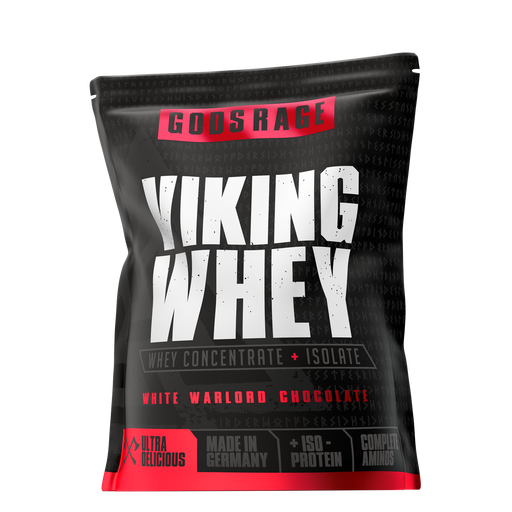 Jetzt 0% sparen
Jetzt % sparen
Original-Preis €29,90 - Original-Preis €29,90Original-Preis €29,90€29,90€29,90 - €29,90Aktueller Preis €29,90|/
Jetzt 0% sparen
Jetzt % sparen
Original-Preis €29,90 - Original-Preis €29,90Original-Preis €29,90€29,90€29,90 - €29,90Aktueller Preis €29,90|/Viking Whey · 1000g
Gods Rage64 reviewsViking Whey erfreut sich seit Jahren großer Beliebtheit. Das liegt zum einen daran, dass es mit seinem Isolat-Anteil eine optimale Proteinquelle da...
Vollständige Details anzeigenOriginal-Preis €29,90 - Original-Preis €29,90Original-Preis €29,90€29,90€29,90 - €29,90Aktueller Preis €29,90|/Jetzt 0% sparen Jetzt % sparen -
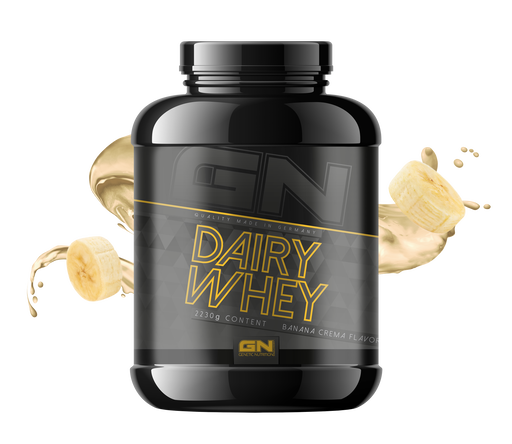 Jetzt 0% sparen
Jetzt % sparen
Original-Preis €62,90 - Original-Preis €62,90Original-Preis €62,90€62,90€62,90 - €62,90Aktueller Preis €62,90|/
Jetzt 0% sparen
Jetzt % sparen
Original-Preis €62,90 - Original-Preis €62,90Original-Preis €62,90€62,90€62,90 - €62,90Aktueller Preis €62,90|/100% Dairy Whey · 2230g
GN Laboratories36 reviewsWhey Protein ist eines des beliebtesten Supplements. Das liegt vor allem daran, dass es eine ideale Eiweißquelle darstellt, mit der man immer und ü...
Vollständige Details anzeigenOriginal-Preis €62,90 - Original-Preis €62,90Original-Preis €62,90€62,90€62,90 - €62,90Aktueller Preis €62,90|/Jetzt 0% sparen Jetzt % sparen -
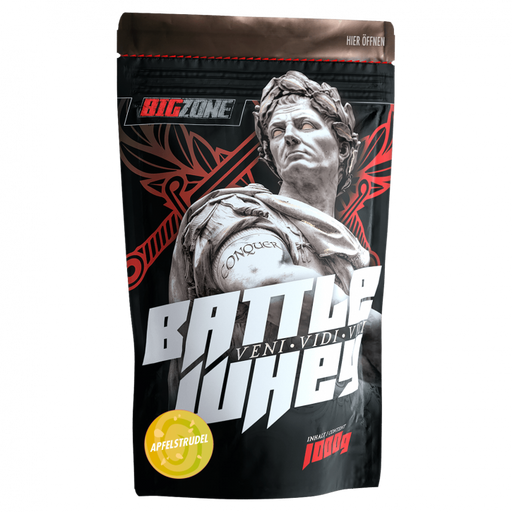 Jetzt 0% sparen
Jetzt % sparen
Original-Preis €31,90 - Original-Preis €31,90Original-Preis €31,90€31,90€31,90 - €31,90Aktueller Preis €31,90|/
Jetzt 0% sparen
Jetzt % sparen
Original-Preis €31,90 - Original-Preis €31,90Original-Preis €31,90€31,90€31,90 - €31,90Aktueller Preis €31,90|/Battle Whey · 1000g
Big Zone17 reviewsZugabe von Verdauungsenzyme Besser bekömmlich Bessere Resorption Für Laktose intolerante Menschen geeignet Cremige Konsistenz
Original-Preis €31,90 - Original-Preis €31,90Original-Preis €31,90€31,90€31,90 - €31,90Aktueller Preis €31,90|/Jetzt 0% sparen Jetzt % sparen -
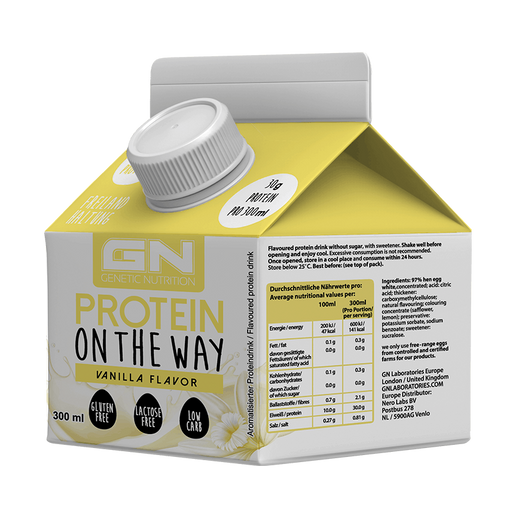 Jetzt 0% sparen
Jetzt % sparen
Original-Preis €14,90 - Original-Preis €14,90Original-Preis €14,90€14,90€14,90 - €14,90Aktueller Preis €14,90|/
Jetzt 0% sparen
Jetzt % sparen
Original-Preis €14,90 - Original-Preis €14,90Original-Preis €14,90€14,90€14,90 - €14,90Aktueller Preis €14,90|/Protein on the Way · 6x300ml
GN Laboratories31 reviewsWenn es um eine optimale Versorgung der Muskulatur geht, kommt man um eine gute Proteinquelle nicht herum. GN liefert mit „Protein on the Way“ die ...
Vollständige Details anzeigenOriginal-Preis €14,90 - Original-Preis €14,90Original-Preis €14,90€14,90€14,90 - €14,90Aktueller Preis €14,90|/Jetzt 0% sparen Jetzt % sparen -
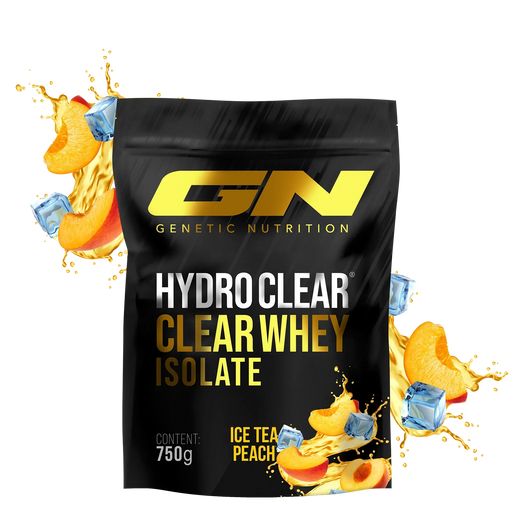 Jetzt 0% sparen
Jetzt % sparen
Original-Preis €39,90 - Original-Preis €39,90Original-Preis €39,90€39,90€39,90 - €39,90Aktueller Preis €39,90|/
Jetzt 0% sparen
Jetzt % sparen
Original-Preis €39,90 - Original-Preis €39,90Original-Preis €39,90€39,90€39,90 - €39,90Aktueller Preis €39,90|/HydroClear Whey Isolat · 750g
GN Laboratories36 reviewsKaum eine Eiweißquelle ist so beliebt wie Whey Protein. Es stellt eine praktische und überall einsetzbare Eiweißquelle dar, die immer und überall e...
Vollständige Details anzeigenOriginal-Preis €39,90 - Original-Preis €39,90Original-Preis €39,90€39,90€39,90 - €39,90Aktueller Preis €39,90|/Jetzt 0% sparen Jetzt % sparen -
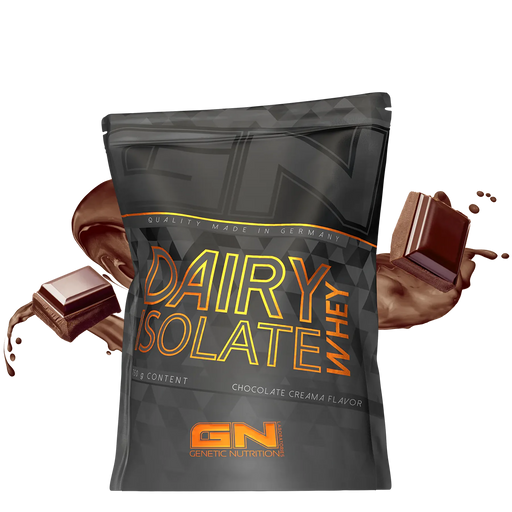 Jetzt 0% sparen
Jetzt % sparen
Original-Preis €32,90 - Original-Preis €32,90Original-Preis €32,90€32,90€32,90 - €32,90Aktueller Preis €32,90|/
Jetzt 0% sparen
Jetzt % sparen
Original-Preis €32,90 - Original-Preis €32,90Original-Preis €32,90€32,90€32,90 - €32,90Aktueller Preis €32,90|/100% Dairy Whey ISOLATE · 750g
GN Laboratories21 reviewsEiweißpulver ist wohl das beliebteste Supplement schlechthin, zurecht, wenn man sich überlegt, wie leicht sich durch Whey der Protein-Intake verbes...
Vollständige Details anzeigenOriginal-Preis €32,90 - Original-Preis €32,90Original-Preis €32,90€32,90€32,90 - €32,90Aktueller Preis €32,90|/Jetzt 0% sparen Jetzt % sparen -
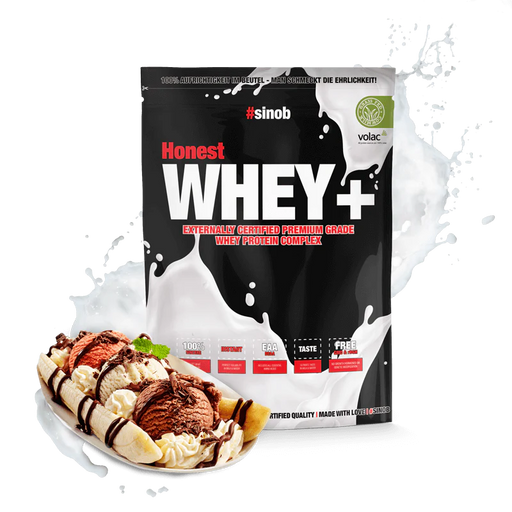 Bis zu 10% sparen
Jetzt % sparen
Original-Preis €26,90 - Original-Preis €31,90Original-Preis €26,90 - Original-Preis €31,90Original-Preis €26,90€26,90 - €31,90€26,90 - €31,90Aktueller Preis €26,90|/
Bis zu 10% sparen
Jetzt % sparen
Original-Preis €26,90 - Original-Preis €31,90Original-Preis €26,90 - Original-Preis €31,90Original-Preis €26,90€26,90 - €31,90€26,90 - €31,90Aktueller Preis €26,90|/Honest Whey Plus · 1000g · 820g
#sinob8 reviewsVielseitige Zielgruppe: Ideal für Bodybuilder, Ausdauersportler, Berufstätige und Hobby-Sportler. Praktisch und Transportabel: Leicht zu transp...
Vollständige Details anzeigenOriginal-Preis €26,90 - Original-Preis €31,90Original-Preis €26,90 - Original-Preis €31,90Original-Preis €26,90€26,90 - €31,90€26,90 - €31,90Aktueller Preis €26,90|/Bis zu 10% sparen Jetzt % sparen -
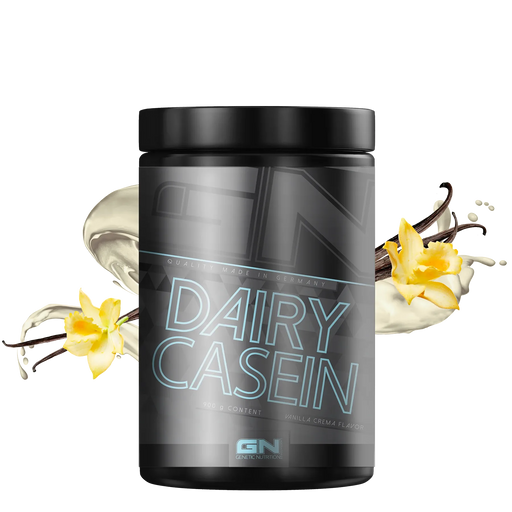 Ausverkauft
Original-Preis €28,90 - Original-Preis €28,90Original-Preis €28,90€28,90€28,90 - €28,90Aktueller Preis €28,90|/
Ausverkauft
Original-Preis €28,90 - Original-Preis €28,90Original-Preis €28,90€28,90€28,90 - €28,90Aktueller Preis €28,90|/100% Dairy Casein · 900g
GN Laboratories15 reviewsCasein ist neben Whey das wohl am häufigsten genutzte Protein-Pulver. Viele Sportler ziehen Casein je nach Situation einem gewöhnlichen Whey Shake ...
Vollständige Details anzeigenOriginal-Preis €28,90 - Original-Preis €28,90Original-Preis €28,90€28,90€28,90 - €28,90Aktueller Preis €28,90|/Ausverkauft -
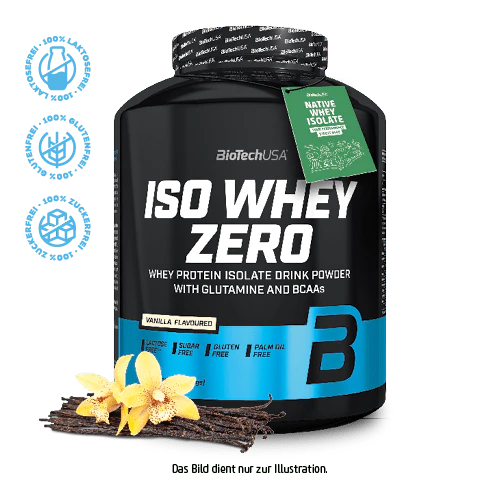 Jetzt 0% sparen
Jetzt % sparen
Original-Preis €76,90 - Original-Preis €76,90Original-Preis €76,90€76,90€76,90 - €76,90Aktueller Preis €76,90|/
Jetzt 0% sparen
Jetzt % sparen
Original-Preis €76,90 - Original-Preis €76,90Original-Preis €76,90€76,90€76,90 - €76,90Aktueller Preis €76,90|/Iso Whey Zero · 2270g
Biotech USA7 reviews21 g WPI-Proteine mit BCAAs 0 g Zucker 0 g Transfette 0 g Lactose
Original-Preis €76,90 - Original-Preis €76,90Original-Preis €76,90€76,90€76,90 - €76,90Aktueller Preis €76,90|/Jetzt 0% sparen Jetzt % sparen -
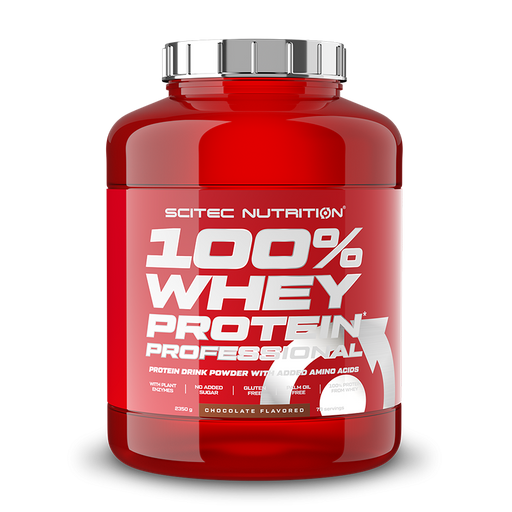 Jetzt 0% sparen
Jetzt % sparen
Original-Preis €64,90 - Original-Preis €64,90Original-Preis €64,90€64,90€64,90 - €64,90Aktueller Preis €64,90|/
Jetzt 0% sparen
Jetzt % sparen
Original-Preis €64,90 - Original-Preis €64,90Original-Preis €64,90€64,90€64,90 - €64,90Aktueller Preis €64,90|/100% Whey Protein Professional · 2350g
SCITEC Nutrition6 reviewsMischung aus Molkenkonzentrat und Molkenisolat Enthält alle essentiellen Aminosäuren Zusätzliche Aminosäuren und Verdauungsenzyme Enthält L-Leucin...
Vollständige Details anzeigenOriginal-Preis €64,90 - Original-Preis €64,90Original-Preis €64,90€64,90€64,90 - €64,90Aktueller Preis €64,90|/Jetzt 0% sparen Jetzt % sparen -
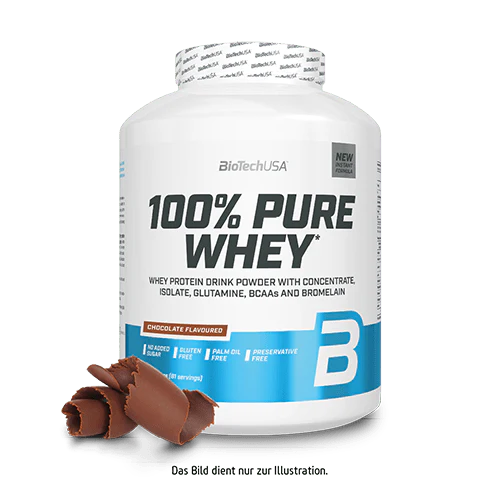 Jetzt 0% sparen
Jetzt % sparen
Original-Preis €61,90 - Original-Preis €61,90Original-Preis €61,90€61,90€61,90 - €61,90Aktueller Preis €61,90|/
Jetzt 0% sparen
Jetzt % sparen
Original-Preis €61,90 - Original-Preis €61,90Original-Preis €61,90€61,90€61,90 - €61,90Aktueller Preis €61,90|/100% Pure Whey · 2270g
Biotech USA7 reviewsHoher Proteingehalt: 78 % 6 g BCAA pro Portion Glutenfrei Ohne Zuckerzusatz Ohne Aspartam Keine Konservierungsstoffe Vielseitiges Geschmackssortim...
Vollständige Details anzeigenOriginal-Preis €61,90 - Original-Preis €61,90Original-Preis €61,90€61,90€61,90 - €61,90Aktueller Preis €61,90|/Jetzt 0% sparen Jetzt % sparen -
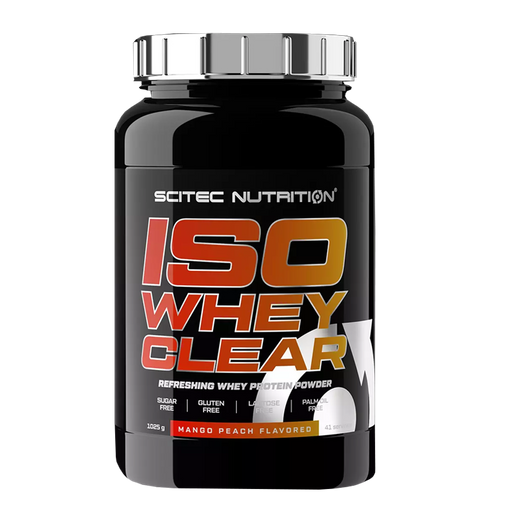 Jetzt 0% sparen
Jetzt % sparen
Original-Preis €39,90 - Original-Preis €39,90Original-Preis €39,90€39,90€39,90 - €39,90Aktueller Preis €39,90|/
Jetzt 0% sparen
Jetzt % sparen
Original-Preis €39,90 - Original-Preis €39,90Original-Preis €39,90€39,90€39,90 - €39,90Aktueller Preis €39,90|/Iso Whey Clear · 1025g
SCITEC Nutrition4 reviewsIso Whey Clear ist ein erfrischendes Getränk auf Proteinbasis. Es enthält 20-21 Gramm Protein pro Portion. Das Getränk ist zuckerfrei und fördert ...
Vollständige Details anzeigenOriginal-Preis €39,90 - Original-Preis €39,90Original-Preis €39,90€39,90€39,90 - €39,90Aktueller Preis €39,90|/Jetzt 0% sparen Jetzt % sparen -
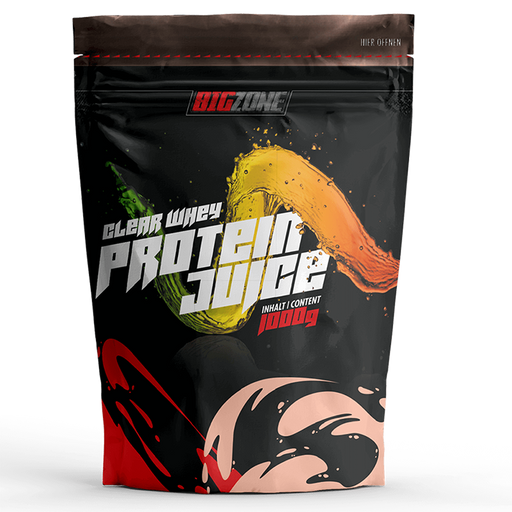 Jetzt 0% sparen
Jetzt % sparen
Original-Preis €44,90 - Original-Preis €44,90Original-Preis €44,90€44,90€44,90 - €44,90Aktueller Preis €44,90|/
Jetzt 0% sparen
Jetzt % sparen
Original-Preis €44,90 - Original-Preis €44,90Original-Preis €44,90€44,90€44,90 - €44,90Aktueller Preis €44,90|/Clear Whey Protein Juice · 1000g
Big Zone5 reviewshochwertiges Molkenprotein-Isolat mit Erfrischungsgetränk Charakter und Konsistenz lecker fruchtige Geschmäcker hoher Proteingehalt extrem niedrig...
Vollständige Details anzeigenOriginal-Preis €44,90 - Original-Preis €44,90Original-Preis €44,90€44,90€44,90 - €44,90Aktueller Preis €44,90|/Jetzt 0% sparen Jetzt % sparen -
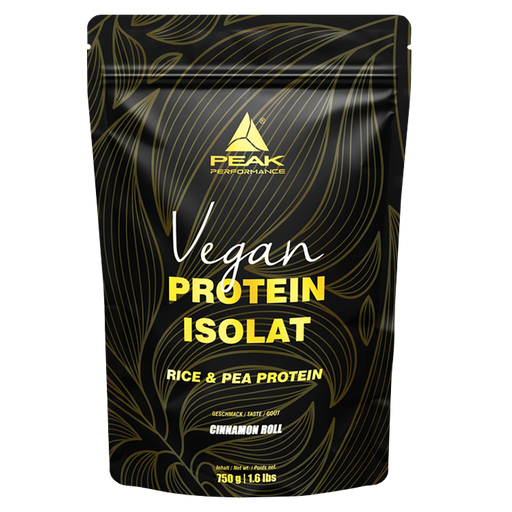 Jetzt 0% sparen
Jetzt % sparen
Original-Preis €18,90 - Original-Preis €18,90Original-Preis €18,90€19,90€19,90 - €19,90Aktueller Preis €19,90|/
Jetzt 0% sparen
Jetzt % sparen
Original-Preis €18,90 - Original-Preis €18,90Original-Preis €18,90€19,90€19,90 - €19,90Aktueller Preis €19,90|/Vegan Protein Isolate · 750g
PEAK7 reviewsVeganes Proteinpulver auf Basis von Reisprotein- und Erbsenproteinisolat 100% pflanzliches Mehrkomponentenprotein 80 %* hochwertiger Proteinanteil...
Vollständige Details anzeigenOriginal-Preis €18,90 - Original-Preis €18,90Original-Preis €18,90€19,90€19,90 - €19,90Aktueller Preis €19,90|/Jetzt 0% sparen Jetzt % sparen -
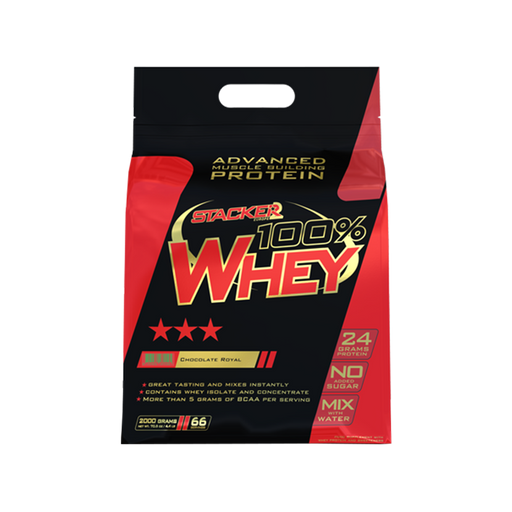 Jetzt 0% sparen
Jetzt % sparen
Original-Preis €54,90 - Original-Preis €54,90Original-Preis €54,90€56,90€56,90 - €56,90Aktueller Preis €56,90|/
Jetzt 0% sparen
Jetzt % sparen
Original-Preis €54,90 - Original-Preis €54,90Original-Preis €54,90€56,90€56,90 - €56,90Aktueller Preis €56,90|/100% Whey · 2000g
Stacker 26 reviews100% Whey Stacker 2 ist eine Proteinergänzung für optimalen Muskelaufbau. Enthält ausschließlich Molke mit dem höchsten biologischen Wert. Verring...
Vollständige Details anzeigenOriginal-Preis €54,90 - Original-Preis €54,90Original-Preis €54,90€56,90€56,90 - €56,90Aktueller Preis €56,90|/Jetzt 0% sparen Jetzt % sparen -
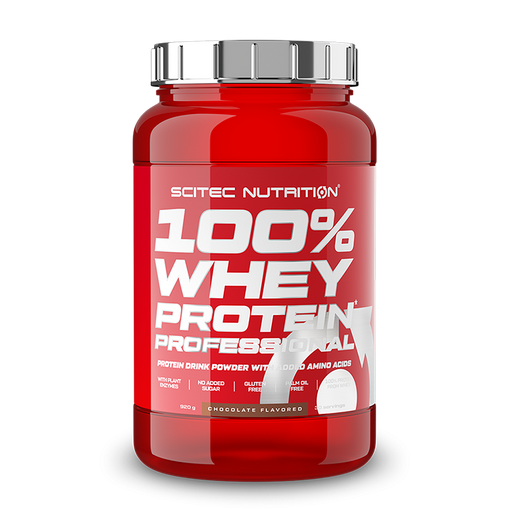 Jetzt 0% sparen
Jetzt % sparen
Original-Preis €28,90 - Original-Preis €28,90Original-Preis €28,90€28,90€28,90 - €28,90Aktueller Preis €28,90|/
Jetzt 0% sparen
Jetzt % sparen
Original-Preis €28,90 - Original-Preis €28,90Original-Preis €28,90€28,90€28,90 - €28,90Aktueller Preis €28,90|/100% Whey Protein Professional · 920g
SCITEC Nutrition5 reviewsMischung aus Molkenkonzentrat und Molkenisolat Enthält alle essentiellen Aminosäuren Zusätzliche Aminosäuren und Verdauungsenzyme Enthält L-Leucin...
Vollständige Details anzeigenOriginal-Preis €28,90 - Original-Preis €28,90Original-Preis €28,90€28,90€28,90 - €28,90Aktueller Preis €28,90|/Jetzt 0% sparen Jetzt % sparen -
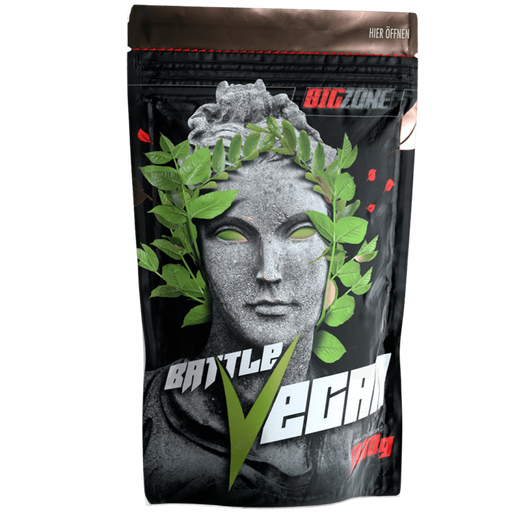 Jetzt 0% sparen
Jetzt % sparen
Original-Preis €27,90 - Original-Preis €27,90Original-Preis €27,90€29,90€29,90 - €29,90Aktueller Preis €29,90|/
Jetzt 0% sparen
Jetzt % sparen
Original-Preis €27,90 - Original-Preis €27,90Original-Preis €27,90€29,90€29,90 - €29,90Aktueller Preis €29,90|/Battle Vegan · 1000g
Big Zone6 reviewsHardcore Bodybuilding und Vegan passen zusammen Erstes veganes Protein in Big Zone Qualität und Geschmack Battle Vegan besteht aus 70% hochwertige...
Vollständige Details anzeigenOriginal-Preis €27,90 - Original-Preis €27,90Original-Preis €27,90€29,90€29,90 - €29,90Aktueller Preis €29,90|/Jetzt 0% sparen Jetzt % sparen -
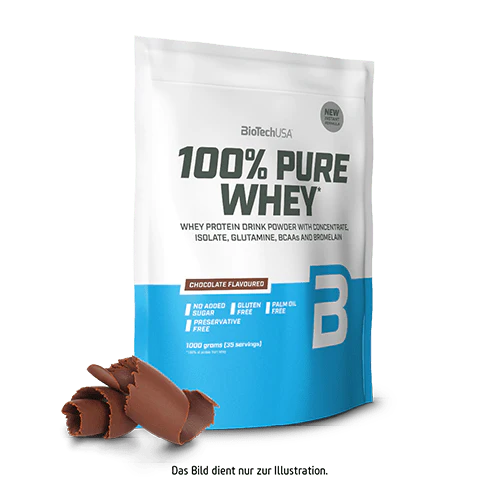 Jetzt 0% sparen
Jetzt % sparen
Original-Preis €29,90 - Original-Preis €29,90Original-Preis €29,90€29,90€29,90 - €29,90Aktueller Preis €29,90|/
Jetzt 0% sparen
Jetzt % sparen
Original-Preis €29,90 - Original-Preis €29,90Original-Preis €29,90€29,90€29,90 - €29,90Aktueller Preis €29,90|/100% Pure Whey · 1000g
Biotech USA4 reviewsHoher Proteingehalt: 78 % 6 g BCAA pro Portion Glutenfrei Ohne Zuckerzusatz Ohne Aspartam Keine Konservierungsstoffe Vielseitiges Geschmackssortim...
Vollständige Details anzeigenOriginal-Preis €29,90 - Original-Preis €29,90Original-Preis €29,90€29,90€29,90 - €29,90Aktueller Preis €29,90|/Jetzt 0% sparen Jetzt % sparen -
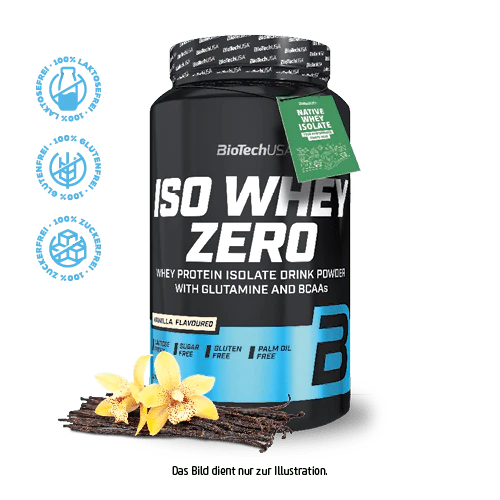 Jetzt 0% sparen
Jetzt % sparen
Original-Preis €41,90 - Original-Preis €41,90Original-Preis €41,90€41,90€41,90 - €41,90Aktueller Preis €41,90|/
Jetzt 0% sparen
Jetzt % sparen
Original-Preis €41,90 - Original-Preis €41,90Original-Preis €41,90€41,90€41,90 - €41,90Aktueller Preis €41,90|/Iso Whey Zero · 908g
Biotech USA6 reviewsFormel auf Basis von Native Whey Isolate Hoher Proteingehalt Mit zusätzlichen Aminosäuren: L-Glutamin und BCAA Zucker- laktose- und glutenfrei Pal...
Vollständige Details anzeigenOriginal-Preis €41,90 - Original-Preis €41,90Original-Preis €41,90€41,90€41,90 - €41,90Aktueller Preis €41,90|/Jetzt 0% sparen Jetzt % sparen -
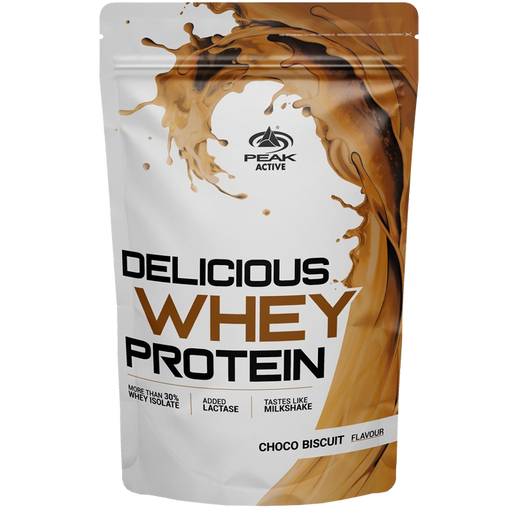 Jetzt 0% sparen
Jetzt % sparen
Original-Preis €27,90 - Original-Preis €27,90Original-Preis €27,90€27,90€27,90 - €27,90Aktueller Preis €27,90|/
Jetzt 0% sparen
Jetzt % sparen
Original-Preis €27,90 - Original-Preis €27,90Original-Preis €27,90€27,90€27,90 - €27,90Aktueller Preis €27,90|/Delicious Whey Protein · 900g
PEAK5 reviewsHochwertige Kombination aus Whey Konzentrat & Whey Isolat Hochwertiges Whey Protein mit ausgezeichneten Nährstoffwerten Herausragendes Aminosä...
Vollständige Details anzeigenOriginal-Preis €27,90 - Original-Preis €27,90Original-Preis €27,90€27,90€27,90 - €27,90Aktueller Preis €27,90|/Jetzt 0% sparen Jetzt % sparen -
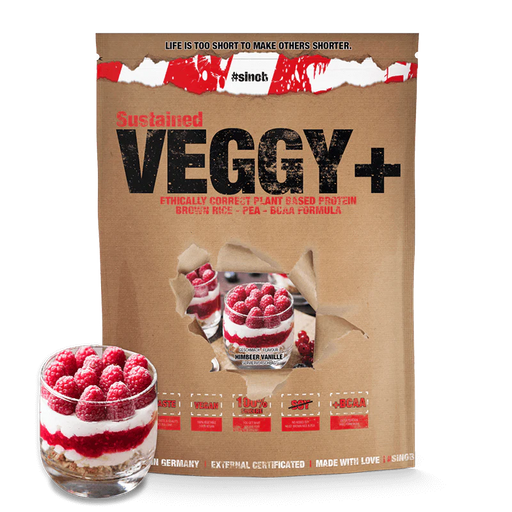 Jetzt 0% sparen
Jetzt % sparen
Original-Preis €26,90 - Original-Preis €26,90Original-Preis €26,90€27,90€27,90 - €27,90Aktueller Preis €27,90|/
Jetzt 0% sparen
Jetzt % sparen
Original-Preis €26,90 - Original-Preis €26,90Original-Preis €26,90€27,90€27,90 - €27,90Aktueller Preis €27,90|/Veggy Plus Vegan Protein · 900g
#sinob1 reviewHoher Proteingehalt: Etwa 70% Protein pro 100g Pulver, mit über 20g BCAAs pro 100g Protein. Vielseitige Proteinquellen: Eine Mischung aus Reisp...
Vollständige Details anzeigenOriginal-Preis €26,90 - Original-Preis €26,90Original-Preis €26,90€27,90€27,90 - €27,90Aktueller Preis €27,90|/Jetzt 0% sparen Jetzt % sparen -
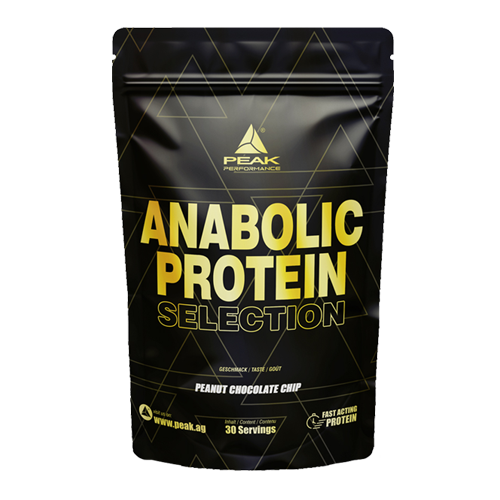 Jetzt 0% sparen
Jetzt % sparen
Original-Preis €22,90 - Original-Preis €22,90Original-Preis €22,90€23,90€23,90 - €23,90Aktueller Preis €23,90|/
Jetzt 0% sparen
Jetzt % sparen
Original-Preis €22,90 - Original-Preis €22,90Original-Preis €22,90€23,90€23,90 - €23,90Aktueller Preis €23,90|/Anabolic Protein Selection · 900g
PEAK2 reviewsUnsere Proteinmatrix kombiniert Soja- und Whey-Protein Anabolic Protein Selection mit einer zusätzlichen Portion L-Leucin für beste Ergebnisse: 80...
Vollständige Details anzeigenOriginal-Preis €22,90 - Original-Preis €22,90Original-Preis €22,90€23,90€23,90 - €23,90Aktueller Preis €23,90|/Jetzt 0% sparen Jetzt % sparen -
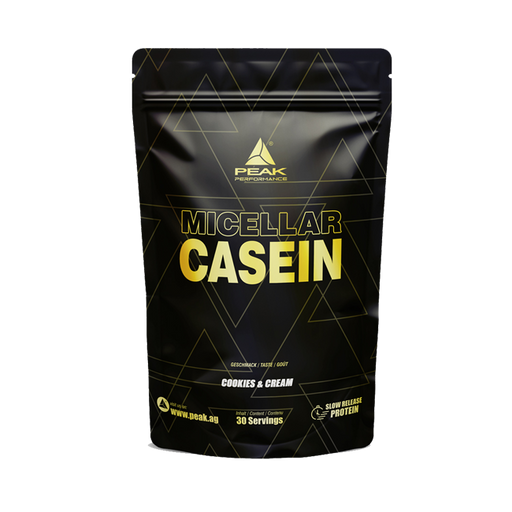 Jetzt 0% sparen
Jetzt % sparen
Original-Preis €34,90 - Original-Preis €34,90Original-Preis €34,90€34,90€34,90 - €34,90Aktueller Preis €34,90|/
Jetzt 0% sparen
Jetzt % sparen
Original-Preis €34,90 - Original-Preis €34,90Original-Preis €34,90€34,90€34,90 - €34,90Aktueller Preis €34,90|/Micellar Casein · 900g
PEAK1 reviewCremiges & leckeres Micellares Casein Protein mit Langzeitversorgung Enthält 80 %* erstklassiges Milchprotein. Unterstützt hauptsächlich den ...
Vollständige Details anzeigenOriginal-Preis €34,90 - Original-Preis €34,90Original-Preis €34,90€34,90€34,90 - €34,90Aktueller Preis €34,90|/Jetzt 0% sparen Jetzt % sparen
Was ist Protein?
Protein ist einer der drei Makronährstoffe, aus denen sich unsere Ernährung zusammensetzt. Im Körper dient Protein – oder genauer gesagt die Aminosäuren, aus denen sich jedes Protein zusammensetzt – als Baustein für unterschiedliche Gewebetypen des Körpers, zu denen auch die Inneren Organe und das Muskelgewebe gehören, sowie für unzählige Enzyme und andere Bestandteile des menschlichen Körpers. Ohne eine ausreichende Proteinzufuhr ist ein Aufbau von Muskelmasse nicht möglich und bei einer unzureichenden Proteinzufuhr kann es sogar zu einem Abbau bestehender Muskelsubstanz kommen.
Proteine (griech. Protos = das Erste, das Wichtigste) bzw. Eiweiße (deutscher Begriff) gehören zu den wichtigsten Grundbausteinen aller tierischen und pflanzlichen Zellen. Ohne sie wäre kein Leben möglich, da nur Protein Zellen aufbauen und Gewebe reparieren kann. Als Enzyme und als Hormone regeln sie den gesamten Stoffwechsel, als kontraktile Elemente (Muskelfasern) ermöglichen sie Bewegungsvorgänge. Auch die Abwehrkörper des Immunsystems und bestimmte Transportproteine im Blut bestehen aus Eiweißen. Proteine spielen unter normalen Bedingungen im Energiestoffwechsel keine bedeutende Rolle, dafür sind sie im Baustoffwechsel umso wichtiger. Proteine sind der Hauptbaustoff der Muskeln. Die Aktin- und Myosinfilamente (Myofibrillen) der Muskulatur bestehen aus Proteinkomplexen.
Muskeln bestehen zu 20 % aus Protein und zu über 70 % aus Wasser. Immerhin sind ungefähr 20 % des Körpergewichts Proteine. Von den bekannten über 200 Aminosäuren kann der Mensch aber nur aus 22 Aminosäuren alle Eiweiße bilden, die er benötigt. Man unterscheidet zwischen essentiellen und nicht essentiellen Aminosäuren. Die essentiellen Aminosäuren kann der Körper nicht selber herstellen und müssen daher täglich mit der Nahrung aufgenommen werden. Die semiessentiellen (halb-essentiellen) Aminosäuren kann der Körper dagegen unter bestimmten Stoffwechselumständen nicht in ausreichender Menge bilden. Die übrigen nicht essentiellen Aminosäuren können vom Körper aus den anderen (essentiellen) Aminosäuren synthetisiert werden.
Ähnlich wie Kohlenhydrate sind auch die Eiweiße je nach Anzahl der Aminosäuren eingeteilt in Oligopeptide (2-9 AS=Aminosäuren), Polypeptide (10-100 AS) und Proteine (mehr als 100 AS). Durch die unvorstellbar große Zahl von 10130 Verknüpfungsmöglichkeiten können die verschiedenen Proteine aufgebaut werden. Außer der Aminosäuresequenz (Primärstruktur) wird die Spezifität der Proteine durch die unterschiedliche räumliche Struktur der Peptidkette (Sekundär- und Tertiärstruktur: Faltblattstruktur und a -Helix-Struktur) bestimmt. Die Quartärstruktur beschreibt die Zusammenlagerung und Anordnung mehrerer, räumlich geordneter Peptidketten zu einer biologisch wirksamen Einheit. Die räumliche Anordnung und die Aminosäuresequenz sind für die biologischen Funktionen der Proteine entscheidend.
Wie viel Protein benötigen Sie und wann besteht ein erhöhter Proteinbedarf?
Es wird eine tägliche Eiweißzufuhr von etwa 0,8-1g/kg Körpergewicht empfohlen, das entspricht einem Eiweißanteil an der täglichen Nährstoffmenge von ca. 12- 15%. Mehr Eiweiß benötigen Schwangere und Stillende, Hochleistungssportler nehmen sogar Eiweißmengen von bis zu 2,5g/kg Körpergewicht zu sich. Ebenfalls einen erhöhten Eiweißbedarf haben Kinder und Jugendliche (1-1,2g / kg Körpergewicht), wobei der Bedarf vom Kleinkindalter an stetig abnimmt. Ab dem 25. Lebensjahr verliert der menschliche Körper zunehmend an Gewebesubstanz und damit auch Protein, so dass sich der Eiweißbestand bis zum 60. Lebensjahr um etwa 20% vermindert.
Der tägliche Proteinbedarf hängt primär von Grad und Art der körperlichen Aktivität ab. Der von unterschiedlichen Gesundheitsorganisationen festgelegte Grundbedarf für:
- Körperlich inaktive Menschen liegt bei 0,8 Gramm Protein pro Kilogramm Körpergewicht.
- Körperlich hart arbeitende Menschen und Sportler weisen einen deutlich höheren Proteinbedarf auf, wobei Kraftsportler mit 1,5 bis hin zu 2,5 Gramm Protein pro Kilogramm Körpergewicht am meisten Protein benötigen, da zusätzliches Protein für die Regeneration und den Aufbau von Muskelmasse benötigt wird.
Während einer Diät mit stark eingeschränkter Kalorienzufuhr kann eine noch höhere tägliche Proteinzufuhr notwendig sein, um einen diätbedingten Muskelabbau zu verhindern.
Bedeutung der Proteine für den Sportler
Der Eiweißbestand unterliegt einem ständigen Auf-, Ab- und Umbau. Zwischen Aufbau (Anabolie) und Abbau (Katabolie) der Eiweißstrukturen im Organismus besteht unter normalen Umständen ein dynamisches Gleichgewicht. «Durch den ständigen Auf- und Abbau von Proteinen besteht im Zwischenstoffwechsel eine Aminosäurereserve von 600-700 g, die man als Aminosäurepool bezeichnet. Das ist die einzige, allerdings recht dynamische Eiweißreserve des Organismus, die er ständig zur Verfügung hat.»
Da der Körper im Gegensatz zu Kohlenhydraten und Fetten über keinen direkten Energiespeicher von Eiweißen verfügt, muss er diese ständig mit der Nahrung aufnehmen, damit bei den katabolen Prozessen keine Muskeleiweiß abgebaut werden. Bei körperliche Belastungen im Sport, vor allem im Kraftsport, kommt es nämlich zunächst zu einem Abbau von Eiweißen im Körper.
Daher ist es gerade für Sportler wichtig, dass immer genügend Aminosäuren durch Eiweiß in der Nahrung dem Körper zur Verfügung gestellt werden. Dabei sollte zum einen berücksichtigt werden, dass Eiweiße im Körper nicht lange gespeichert werden und zum anderen, dass der Körper nur bis zu 40 g Eiweiß auf einmal verwerten kann. «Der richtige Abstand zwischen proteinhaltiger Kost (Konzentrat oder fettarmer Mahlzeit) und dem Training sollte etwas 1 bis 1 ½ Stunden betragen.»
Die täglichen Zufuhrempfehlung eines erwachsenen Menschen an Eiweiß liegen bei ungefähr 1 g pro kg Körpergewicht. Der Proteinbedarf des Sportlers wird im Allgemeinen höher angesetzt und kann sportartspezifisch unterschiedlich sein. Nach neueren Untersuchungen ist bekannt, dass der Anteil der Eiweiße am Energieverbrauch bei längerdauernden Belastungen 5-15 % ausmachen kann. Ein weiterer Grund für den erhöhten Eiweißbedarf im Sport liegt darin, dass im Aminosäurepool ein ausreichendes Angebot an freien Aminosäuren vorhanden sein soll, damit zur Energiegewinnung nicht die Aminosäuren aus der Skelettmuskulatur herangezogen werden müssen.
Im Zusammenhang einer Leistungssteigerung spielen die verzweigtkettigen essentiellen Aminosäuren eine besondere Rolle, worauf beim Thema "Leistungssteigerung durch Aminosäuren" ausführlich eingegangen wird. Der Bedarf eines Sportlers ist auch deshalb erhöht, da es – besonders bei Ausdauerbelastungen mit hoher Intensität – zu einem Verschleiß an Muskelfasern, zu strukturellen Veränderungen an den Zellmembranen und Mitochondrien sowie zu Inaktivierungen von Enzymen und Hormonen kommt.
Gründe für einen erhöhten Proteinbedarf des Sportlers:
- Mehrbedarf für die Muske lneubildung (Aufbau-Training)
- Erhöhter Erhaltungsbedarf für die größere Muskelmasse (Abnutzungsquote)
- Erhöhter Verschleiß an Funktionsproteinen und anderen Stickstoffverbindungen
- Möglicher Stimulierungseffekt auf die Proteinsynthese
- Der Pool an freien Aminosäuren im Gewebe ist ein zusätzlicher Energiespeicher und ein Schutz vor dem Abbau an Körperprotein
Welche Vorzüge bietet Protein in Pulverform?
Besonders für Menschen mit einem hohen Proteinbedarf kann es schwer werden, ihren täglichen Proteinbedarf über vollwertige Nahrungsmittel zu decken. Dies gilt umso mehr, je weniger Zeit zum Kochen und zur Vorbereitung von Nahrung besteht. Hier können Proteinshakes eine praktische und bequeme Alternative darstellen, die schnell zubereitet und schnell verzehrt werden kann. Des Weiteren können Sie durch die Wahl Ihres Proteinpulvers gezielt die Proteinquellen wählen, die für Ihre augenblickliche Situation am besten geeignet sind. Da der Shaker problemlos in jeder Sporttasche platz findet, ist beispielsweise Whey Protein Pulver ideal, um dem Körper direkt nach dem Training Protein zuzuführen.
Die Vorteile, die Proteinkonzentrate dem Athleten bieten, liegen auf der Hand: Der Sportler kann mit deren Einsatz problemlos den Eiweißanteil in seiner Ernährung erhöhen, ohne dabei auch Fett, Cholesterin oder Purine zuzuführen, was mit herkömmlichen Proteinquellen wie Fleisch, Fisch, Eier, und Milchprodukten nur schwer möglich wäre. Außerdem kann man einen vorgefertigten Proteindrink überall mit hinnehmen, so dass der Sportler auch außer Haus problemlos seine eiweißreiche Ernährung beibehalten kann. Kostengünstiger ist es auch, den Eiweißbedarf mit Proteinsupplements zu decken. Ein weiterer Vorteil, den eine kontinuierliche Proteinzufuhr dem Athleten bietet, ist ein konstanter Blutzuckerspiegel, der Heißhungerattacken vermeidet, was gerade in der Diät sehr hilfreich ist. Dabei empfiehlt es sich, die Eiweißzufuhr sinnvoll über den Tag zu verteilen. Besonders vor dem Schlafengehen und früh morgens sollte Protein zugeführt werden, um der nächtlichen, katabolen Phase entgegenzuwirken.
Welche unterschiedlichen Arten von Proteinsupplements sind erhältlich und für welche Situation ist welches Protein am besten geeignet?
In unserem Shop können Sie eine Vielzahl unterschiedlicher Arten von Eiweißpulver-Supplements mit unterschiedlichen Zusammensetzungen für unterschiedliche Anwendungsbereiche finden. Bei den am häufigsten verwendeten Protein Supplements handelt es sich um sogenannte schnell verdauliche Proteinquellen, zu denen unter anderem
- Whey Protein,
- Whey Protein Isolat,
- Whey Protein Hydrolysat,
- Ei Protein und
- Sojaprotein gehören.
Diese Proteinsorten werden vom Körper sehr schnell verdaut und liefern den Muskeln schnell große Mengen an für Regeneration und Muskelaufbau benötigten Aminosäuren. Schnell verdauliche Protein Supplements sind besonders für die Verwendung vor und nach dem Training geeignet, stellen jedoch auch eine ideale Proteinquelle für jede andere Tageszeit dar.
Zusätzlich hierzu gibt es langsamer verdauliche Protein Supplements, wie:
- Casein Protein,
- Rindfleisch Protein,
- Erbsen Protein oder
- eine Mischung aus unterschiedlichen Proteinquellen enthalten (sogenannte Mehrkomponenten Proteinpulver).
Diese Protein Produkte versorgen den Körper über einen längeren Zeitraum mit Aminosäuren. Diese Eiweißpulver sind am besten als Zwischenmahlzeiten und vor dem zu Bett Gehen geeignet.
Immer beliebter werden Protein Supplements, die Proteine aus pflanzlichen Quellen enthalten, wie:
- Reis Protein,
- Hanf Protein,
- Erbsen Protein und
- Soja Protein.
Diese Produkte sind besonders gut für Vegetarier und Veganer geeignet, wobei auch immer mehr Nichtvegetarier auf diese Produkte zurückgreifen, da sie frei von Laktose und einigen anderen Bestandteilen sind, die Unverträglichkeiten hervorrufen können.
Zusammenfassende biologische Funktionen der Proteine
- Bausteine der Muskulatur und dienen zum Aufbau von Sehen, Bändern, Nerven- und Bindegewebe
- Regeneration und Wiederherstellung bei Gewebeverletzungen und Mikroverletzungen der Muskulatur nach dem Training
- als Abwehrstoffe: Antikörper wehren eingedrungene Erreger ab
- als Enzyme: Beteiligung am Stoffwechsel
- als Hormone: Botenstoffe, die an einem bestimmten Wirkungsort eine gewisse Reaktion hervorrufen
- Transportfunktionen: insbesondere die Bluteiweißkörper.
Das Chromoprotein Hämoglobin ist für den Gastransport (O2-Transport) zuständig. Ferner werden auch körperfremde Stoffe (Wirkstoffe aus Medikamenten) an Proteine angelaget und auf diese Art transportiert.
- Schutz- und Stützfunktionen: bilden Hüllen um Zellen (Schutzkolloide), das Faserprotein Kollagen verleiht Knochen und Gewebe Zugfestigkeit
- sind Teil der biologischen Membranen
- Energielieferant für den Energiestoffwechsel, können Kohlenhydrate neubilden; haben einen steigernden Effekt auf den Energieumsatz
- Übertragen Erbinformation: der Erbinformationsträger DNA (Desoxyribonucleinsäure) ist ein Proteinnucleotid
Funktion im Körper
Eiweiße kommen im menschlichen Organismus vor als Bestandteil von:
- Hormonen (Peptid- oder Proteohormone)
- Enzymen
- Membranproteinen der Zellwand (z.B. Rezeptoren oder Transportproteine)
- Stütz- und Gerüsteiweißen (z.B. Kollagen, Keratin oder Elastin)
- Kontraktilen Proteinen (z.B. Aktin- und Myosinfilamente als kontraktile Elemente des Muskels)
- Transporteiweißen (z.B. Hämoglobin, Myoglobein und bestimmte Plasmaproteine)
- Blutgerinnungsfaktoren
- Antikörpern
- Bei der Energieversorgung nur Reservefunktion
Eiweiße sind nicht so energiereich wie Fette. Ihre Energiedichte beträgt 17,2 kJ/g (= 4,1 kcal/g). Die mit der Nahrung aufgenommenen Eiweiße werden im Darm in ihre Bausteine zerlegt, die Aminosäuren werden resorbiert, um dann als Material für den Aufbau körpereigener Eiweiße zu dienen. Als Energiequelle setzt der Körper Eiweiß erst ein, wenn er die Kohlenhydrat- und Fettspeicher aufgebraucht hat. Dies geschieht während längerer Hungerperioden. In einem komplizierten chemischen Prozess kann in der Leber aus einigen Aminosäuren Glukose als Energielieferant hergestellt werden. Andere Aminosäuren können, ähnlich wie Fettsäuren, zu sog. Ketonkörpern abgebaut werden, die von den Organen in Zeiten der Mangelversorgung alternativ zur Glukose verstoffwechselt werden.
Eiweißmangel
Eiweiß hat eine große Anzahl von Aufgaben in unserem Körper. Ein Mangel würde schlimme Folgen haben:
- Haarausfall (Haare bestehen zu 97-100% aus Proteinen - Keratin)
- Antriebsarmut
- Im schlimmsten Fall kommt es zur Eiweißmangelkrankheit Kwashiorkor. Menschen (meist Kinder), die an Kwashiorkor leiden, erkennt man an ihren dicken Bäuchen. Der Organismus versucht durch Wasser den Eiweißmangel abzudecken, sodass das Wasser nach einiger Zeit im Körper ablagert(Ödem).
Weitere Symptome sind:
- Muskelschwäche
- Wachstumsstörungen
- Fettleber
- Ödeme
Biologische Wertigkeit (BW)
Die biologische Wertigkeit der Nahrungseiweiße gibt an, wie viele Gramm Körpereiweiß durch 100 g des betreffenden Nahrungseiweiß aufgebaut werden können. Sie gibt gleichzeitig an, wie wertvoll das Eiweiß eines bestimmten Nahrungsmittel bzw. eines Proteinkonzentrates für den Aufbau von Muskulatur und anderen körpereigenen Eiweißstoffen (z.B. Enzyme, Hormone) ist. Als Bezugswert dient das Vollei-Protein, denn ihm ist eine Biologische Wertigkeit von 100 gegeben worden. Alle anderen Proteine werden zu ihm in Relation gesetzt. Je höher die biologische Wertigkeit eines Nahrungseiweißes ist, desto weniger braucht der menschliche Körper davon zur Aufrechterhaltung seiner Eiweißbilanz. Tierisches Eiweiß kann prinzipiell als hochwertiger angesehen als pflanzliches Eiweiß. Allerdings kann man durch eine geeignete Mischung von tierischen und pflanzlichen Eiweißträgern viel höhere biologische Wertigkeiten erzielen als durch tierisches Eiweiß alleine, da sich die Eiweißstoffe verschiedener Nahrungsmittel in ihrem Aminosäurespektrum gegenseitig ergänzen und aufwerten können. Entscheidend für die Eignung eines Nahrungsproteins zur Biosynthese von Körpereiweiß ist vor allem der Gehalt an essentiellen Aminosäuren und die Verfügbarkeit von Aminosäuren. Bei der Auswahl der Nahrungsmittel sollte man aber nicht nur die biologische Wertigkeit achten, sondern auch bedenken, dass mit tierischem Nahrungseiweiß gleichzeitig eine große Menge unerwünschter Begleitstoffe aufgenommen werden, nämlich Purine, Cholesterin und Fette. Purine im Fleisch liefern im Stoffwechsel als Endprodukt Harnsäure, die sich in den Nieren, Gelenken und Sehnen ablagern kann, so dass es zu Nierensteinen, Gicht und erhöhter Verletzungsanfälligkeit kommen kann. Dagegen sind Eier, Milch und Milchprodukte purinfrei. In Anbetracht dieser Tatsachen sollte man die Aufnahme tierischer Eiweiße einschränken und auch pflanzliche Nahrungsmittel in die verstärkt einbeziehen. Die nachfolgende Tabelle zeigt, wie die Kombination tierischer und pflanzlicher Eiweißträger sogar die biologische Wertigkeit des Eiweißes aufwerten können.
Protein kaufen: Die Spreu vom Weizen trennen
Bei Proteinpulvern lassen sich teils große Qualitätsunterschiede feststellen. Wie auch bei “normalen” Lebensmitteln sollte darauf geachtet werden, dass die Zutatenliste relativ kurz ausfällt. Häufig sind künstliche Farb- oder Konservierungsstoffe enthalten. Hochwertige Produkte verzichten hierauf.
Selbstverständlich ist die Herkunft der Rohstoffe maßgeblich für die Qualität des Produktes. Stammen die Rohstoffe beispielsweise aus Deutschland, spricht dies wegen strengen Richtlinien und Hygienevorschriften in deutsche Produktionsstätten für hochwertige Rohstoffe. Wenn ein Supplementhersteller die Kosten für diese hochwertigen Rohstoffe nicht scheut, wirbt er für gewöhnlich auch damit.
Letztlich ist auch der Proteingehalt im Proteinpulver selbst ein Qualitätsmerkmal. Bei einem Proteingehalt von mindestens 75g pro 100g Proteinpulver spricht man von einem qualitativ hochwertigen Produkt. Beispielsweise das 100% Dairy Whey Protein aus dem Hause GN Laboratories weist einen Proteingehalt von 80g pro 100g auf.
Welches Protein kaufen?
Es gibt verschiedenste Arten von Proteinpulvern, sodass man als Laie schnell den Überblick verliert. Die verschiedenen Proteinquellen bringen individuellen Eigenschaften mit und können somit vielseitig eingesetzt und kombiniert werden. Das Aminosäurenprofil eines Produktes sollte genau unter die Lupe genommen werden, da jede Proteinquelle ein unterschiedliches aufweist. Grundsätzlich ist ein ausgewogenes Aminosäurenprofil zu empfehlen. Durch die Kombination verschiedener Proteinquellen kann ein Mangel ausgeschlossen werden. Abgesehen von Aminosäurenprofil verfügen verschiedene Proteinquellen auch über verschiedene Eigenschaften bezüglich der Verdauung.
*vermeiden Sie Natriumkaseinat
Referenzen
- LemonPW (1996) Is increased dietary protein necessary or beneficial for individuals with a physically active lifestyle? Nutr Rev 54(4 Pt 2): 169-75
- Arndt K. (HG.) (2001) Handbuch Nahrungsergänzungen-Bedeutung und Anwendung leistungssteigernder Substanzen für Bodybuilding und Kraftsport. Seiten: 210-212
- GEISS/HAMM,Handbuch Sportlerernährung (1992)
- KONOPKA, Sporternährung (1996)
- BREITENSTEIN/HAMM, Bodybuilding, natürlich, gesund, erfolgreich

